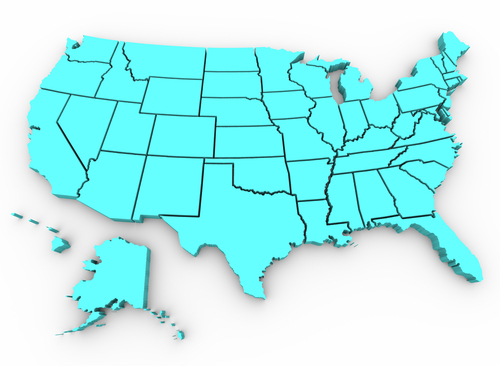 In Columbus and throughout Ohio, custody attorneys are often asked about the rights of parents who are not married to the mother or father of their child. We have answered a lot of the basic questions in other articles on our web site. This article will focus on some of the questions frequently asked in the comments from our readers.
In Columbus and throughout Ohio, custody attorneys are often asked about the rights of parents who are not married to the mother or father of their child. We have answered a lot of the basic questions in other articles on our web site. This article will focus on some of the questions frequently asked in the comments from our readers.
 Q. Are Ohio Fathers of infants who are not married to the mother allowed to have overnight visits with the child?
Q. Are Ohio Fathers of infants who are not married to the mother allowed to have overnight visits with the child?
A. It depends on the whether the Father has a court order for visitation, the Ohio County that issued the visitation order, the county that the case is in, and the particular Judge or Magistrate that issued the order. If the Father has no court ordered time with his child, even if he pays child support, he has no legal right to visitation with his child.
 Most Ohio counties have a local visitation schedule. This schedule is the FLOOR, not the CEILING of the amount of time a fit parent will have with their child. If your particular county has a separate schedule for infants, then your county’s model schedule should be used as a guideline for what to expect. In Franklin County (Columbus), Fathers who are not married to their child’s mother typically start overnights very quickly, usually on a schedule similar to Franklin County Local Rule 27 (aka Franklin County Local Rule 22). Other counties, such as Pickaway County, do not have overnights in their parenting schedule until the child is at least 12 months old.
Most Ohio counties have a local visitation schedule. This schedule is the FLOOR, not the CEILING of the amount of time a fit parent will have with their child. If your particular county has a separate schedule for infants, then your county’s model schedule should be used as a guideline for what to expect. In Franklin County (Columbus), Fathers who are not married to their child’s mother typically start overnights very quickly, usually on a schedule similar to Franklin County Local Rule 27 (aka Franklin County Local Rule 22). Other counties, such as Pickaway County, do not have overnights in their parenting schedule until the child is at least 12 months old.
CALL NOW at (614) 225-9316 or contact us by e-mail.
 This is where the issue of your particular Judge or Magistrate comes into the “it depends” answer. In Columbus, and throughout Ohio, a Judge or Magistrate can order ANY schedule that he or she believes is in the best interest of the child. They are not required to order a schedule the same as, or even similar to, the model visitation schedule for the county. The more modern trend is that children, especially young children, should have frequent time spent with each parent in order to properly bond with each parent. In other words, the modern trends is that even if a mother is still breastfeeding, overnights are not off the table at any age. Remember, breast milk can be pumped, and babies have been drinking formula for a long time. So the issue is, what can you expect from your Judge or Magistrate? An experienced Ohio Custody Attorney can help you understand what your particular Judge or Magistrate’s recent trends seem to be. Of course, this does not mean that your attorney can tell you with certainty what to expect. Instead, an experienced custody attorney can apply his or her experience with your particular Magistrate to the facts of your situation and give you a general idea regarding what the possibilities are and what you might expect.
This is where the issue of your particular Judge or Magistrate comes into the “it depends” answer. In Columbus, and throughout Ohio, a Judge or Magistrate can order ANY schedule that he or she believes is in the best interest of the child. They are not required to order a schedule the same as, or even similar to, the model visitation schedule for the county. The more modern trend is that children, especially young children, should have frequent time spent with each parent in order to properly bond with each parent. In other words, the modern trends is that even if a mother is still breastfeeding, overnights are not off the table at any age. Remember, breast milk can be pumped, and babies have been drinking formula for a long time. So the issue is, what can you expect from your Judge or Magistrate? An experienced Ohio Custody Attorney can help you understand what your particular Judge or Magistrate’s recent trends seem to be. Of course, this does not mean that your attorney can tell you with certainty what to expect. Instead, an experienced custody attorney can apply his or her experience with your particular Magistrate to the facts of your situation and give you a general idea regarding what the possibilities are and what you might expect.
 Q. If the parents of the child agree to shared parenting (aka joint custody, shared custody, 50/50 parenting) do they need to hire an attorney to write up the paperwork?
Q. If the parents of the child agree to shared parenting (aka joint custody, shared custody, 50/50 parenting) do they need to hire an attorney to write up the paperwork?
There are very few situations where you are required to have an attorney. You are almost always allowed to represent yourself. Yes, you can prepare your own paperwork. If you do decide to hire an attorney, the attorney can only represent EITHER the mother or the father, but NOT BOTH. This is a conflict of interest, even if the parties agree to shared parenting. You CAN, however, prepare your own paperwork. A shared parenting plan is not an especially easy thing to draft on your own, but if you want to (or need to) represent yourself, the website for the Clerk of Court may offer some helpful forms. If you don’t find what you are looking for on your clerk’s website, try another Ohio county clerk of court. You can also find some sample forms online at the Franklin County Law Library (Columbus). The free forms page of our website has many helpful links for you if you need to draft your own paperwork. Another option would be for one of the parties to hire an attorney to draft the paperwork, and the other party can take their paperwork to their own attorney to be reviewed. If the paperwork is okay, the parties may want to present their own paperwork to the court. This is called “unbundled services” and it is perfectly fine, as long as your fee agreement with your attorney is very clear about the scope of the services that are to be provided. Many firms offer flat fees for the preparation of paperwork where the parties have agreed on all matters in advance.
CALL NOW at (614) 225-9316 or contact us by e-mail.
 Q. In Ohio, can the mother of a child from an unmarried relationship take the child and leave the state if the father does not have any court ordered visitation?
Q. In Ohio, can the mother of a child from an unmarried relationship take the child and leave the state if the father does not have any court ordered visitation?
YES. In fact, even if an Ohio father DOES have court ordered visitation, this does not automatically stop the mother from moving out of state with the child. It does, however require her to file a relocation notice with the court saying where she has moved. The Father can then file a motion to reallocate parental rights and responsibilities or to modify parenting time. In the meantime, until the court makes a new order, the mother is court ordered to make the child available on the same schedule in her court order. What’s the lesson here? If you learn that your child is going to be moved out of state, DO SOMETHING, FAST! If you don’t know what to do, go meet with an attorney.
 What about Fathers who have shared parenting (aka joint custody or shared custody)? Can the mother still just take the child and move out of the state? That depends on the language of your shared parenting plan. Hopefully, you had the help of an experienced child custody attorney to help you draft the plan, and the plan has provisions regarding moving and what changes if either of the parents move out of the city, out of the county or out of the state (it varies from case to case). If your plan does not saying anything about moving, all may not be lost. Check your local rules of court for the county that issued the plan. Your local rules may have a provision regarding moving that requires things such as a certain amount of notice before moving the child, filing a motion and having a hearing first, or (best case scenario, but rare), a provision that says if the school placement parent moves, the other parent becomes the school placement parent.
What about Fathers who have shared parenting (aka joint custody or shared custody)? Can the mother still just take the child and move out of the state? That depends on the language of your shared parenting plan. Hopefully, you had the help of an experienced child custody attorney to help you draft the plan, and the plan has provisions regarding moving and what changes if either of the parents move out of the city, out of the county or out of the state (it varies from case to case). If your plan does not saying anything about moving, all may not be lost. Check your local rules of court for the county that issued the plan. Your local rules may have a provision regarding moving that requires things such as a certain amount of notice before moving the child, filing a motion and having a hearing first, or (best case scenario, but rare), a provision that says if the school placement parent moves, the other parent becomes the school placement parent.
In Ohio, if an unmarried father has no court papers giving him parental rights, and the mother of his child wants to move, she can move. She is not even required to tell the father where she has moved. Fathers in Ohio have no rights to time with their children or custody of their child until they go to court and get them. Fathers often put off going to court because they are afraid that their child support will be raised beyond what they can afford. An attorney can calculate what the child support guidelines amount would be based on your current income, so you at least know what to expect. If a father who is not married files a complaint to establish paternity and/or parental rights, many Ohio counties, including Franklin County, will issue a temporary restraining order prohibiting the mother from permanently removing the child from the court’s jurisdiction until the father’s custody, visitation or shared parenting motion can be heard and ruled upon by the court.
CALL NOW at (614) 225-9316 or contact us by e-mail.
DISCLAIMER – Read it, it’s important!

 If you have a custody or visitation order from another state, and you now live in Ohio, the process for registering your order with the courts in the state of Ohio is actually relatively simple. Unfortunately, jurisdictions is an issue that can be complicated and sometimes difficult to understand. However, if the state that made the order had jurisdiction to make the order, then registering it in Ohio is pretty basic.
If you have a custody or visitation order from another state, and you now live in Ohio, the process for registering your order with the courts in the state of Ohio is actually relatively simple. Unfortunately, jurisdictions is an issue that can be complicated and sometimes difficult to understand. However, if the state that made the order had jurisdiction to make the order, then registering it in Ohio is pretty basic.  Registering your decree
Registering your decree


